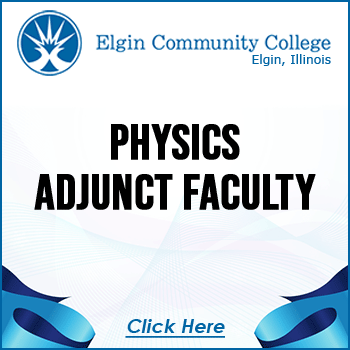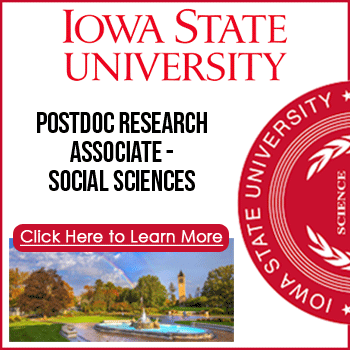This job has Expired

2025 PhD Graduate - Krimigis Postdoctoral Scholarship Program in the Atmospheres and Ionospheres Group
Job Description
DescriptionWould you like to participate as a postdoctoral fellow in cutting-edge atmospheric/ionospheric science research on Earth or solar/extrasolar planets?
Are you interested in how the atmosphere is coupled to changes in the solar–terrestrial environment?
Can you image conducting foundational research surrounding planetary atmospheric and surface characterization, habitability, and astrobiology?
If you can answer "yes" to any of these questions, we want you to work with us through the Krimigis Postdoctoral Scholarship (KPS) Program in the Atmospheres and Ionospheres Group (SRZ) at the Johns Hopkins Applied Physics Laboratory (APL). This program is named after Dr. Stamatios "Tom" Krimigis who was a team member on over 50 years of spaceflight investigations of space science, from Mariner 4 to Mars in 1965 through New Horizons to Pluto in 2015. Krimigis Fellows will be hosted by one of the science groups in the Space Science and Instrumentation Branch of the Space Exploration Sector. Key features of this program include:
- partnering with a research advisor who would provide mentoring on development both as a researcher and a science professional;
- research in cutting-edge fields of space science aligned with the research group;
- support for travel to conferences and publications;
- membership in a postdoc cohort that builds a network among peers;
- training in "soft" professional skills, including proposal-writing;
- ability and support to submit grant proposals as a principal investigator;
- a salary that is competitive in the Baltimore-Washington area;
- and a generous benefits package.
Your professional outcome will include great research opportunities, a foundation for the rest of your career, and building of connections with a variety of researchers and programs at APL, a premier space mission implementation center. We encourage students from historically underrepresented backgrounds to apply. Positions are for a 2-year term, with a possibility of extension to a third year. Most positions will be for full-time work, although part-time work (down to 50%-time) is possible by participant’s request.
The SRZ group consists of 35 full- or part-time scientists organized in 5 thematic sections that focus on planetary atmospheres, space weather research, magnetosphere–ionosphere coupling, Earth and climate science, and exoplanets. Collectively we work on over 100 projects funded by both civil and national security sponsors. Our research extends from the surface of the Earth to exoplanets observable by the James Webb Space Telescope. We are concerned with the vertical coupling of regimes and thus connect space science disciplines from Heliophysics to Earth Science, Planetary Science, and Astrophysics, as well as support national security interests. We develop and use remote sensing, orbital in situ, suborbital, and surface measurement techniques and models, to unravel how the Universe works.
Research opportunities in the Krimigis Postdoctoral Scholarship Program are primarily mentor-defined opportunities supported by funding from existing grants, missions, and other programs. You should list which topics you wish to pursue in your cover letter.
Three mentor-defined topics currently available in Atmospheres and Ionospheres are:
- Use advanced space physics models and data assimilation techniques to generate specifications and forecasts of the dynamics and chemistry of Earth’s ionosphere and thermosphere. Basic research goals are to advance our basic knowledge of the underlying physical processes and advance computational techniques, using existing and new observational data sets of Earth’s upper atmosphere. New capabilities also lead to various Research to Operations to Research (R2O2R) opportunities, in which newly developed technologies can be transitioned for use in operational centers.
- Investigate the link between charged particle weathering and surface composition at icy, airless Solar System bodies, with an emphasis on Jupiter's moons Europa, Ganymede, and Callisto, all of which are known or suspected ocean worlds. This work will be carried out using a combination of computer modeling, analysis of spacecraft data from missions such as New Horizons and JUNO, as well as ground-based spectroscopic observations in the near-infrared. In situ fields and particle observations near the moons will be used to constrain computer models of charged particle weathering, while space and ground-based remote sensing observations in the near-infrared will be used to investigate the moons to search for exogenic controls on surface composition.
- Participate in multiple observing programs focused primarily on characterizing exoplanet atmospheres using the Hubble and James Webb Space Telescopes, as well as the opportunity to collaborate with the Consortium on Habitability and Atmospheres of M-dwarf Planets (CHAMPs) team on astrobiology-related research. Interested candidates may also get involved in mission development, solar system observations as a laboratory for exoplanets, precursor work for HWO, and/or planetary infrared excess.
Other mentor-defined-topics may become available in one or more of the areas listed below. In addition, a small number of opportunities for postdoc-defined, original, high-impact research could be awarded for 50% coverage, in any of the topics listed below (i.e., half your total time may be spent pursuing this work). If you are interested in being considered for postdoc-defined research, include a 3-page proposal with your cover letter for a hypothesis-driven research program, that addresses an important issue in one of the following areas, and can be completed and submitted for publication within a 50% effort over two years. Information on how to structure the research proposal can be found on the Krimigis Postdoctoral Scholars webpage.
- Ionospheric data assimilation and/or machine learning for forecasting
- Physics-based modeling of the ionosphere–thermosphere
- Investigations into magnetosphere-ionosphere coupling processes at the Earth and other Solar System bodies (e.g., Mars, Venus, Jupiter, Uranus)
- Exoplanet studies via telescopic observations, theoretical modeling, simulations, or instrumentation
- Astrobiology investigations relating to habitability or biosignatures on nearby exoplanets
Qualifications
The Krimigis Postdoctoral Scholarship Program is open to recipients of a Ph. D. in physics or a relevant related field whose dissertation focused on research broadly relevant to atmospheric/ionospheric science. Eligibility for the program requires:
- a Ph. D. in a relevant subject awarded after January 1, 2022 (or earlier if a leave of absence has been taken).
- demonstrated ability to do independent research, and submit results for publication by the expected start date
- ability to work well within a team
You’ll go above and beyond our minimum requirements if you have one or more publications, especially with a potentially high impact.
Applications are due October 15, 2024 and notification of selections is expected by February, 2025. The start date is negotiable with the applicant.
Why work at APL?
The Johns Hopkins University Applied Physics Laboratory (APL) brings world-class expertise to our nation’s most critical defense, security, space and science challenges. While we are dedicated to solving complex challenges and pioneering new technologies, what makes us truly outstanding is our culture. We offer a vibrant, welcoming atmosphere where you can bring your authentic self to work, continue to grow, and build strong connections with inspiring teammates.
At APL, we celebrate our differences and encourage creativity and bold, new ideas. Our employees enjoy generous benefits, including a robust education assistance program, unparalleled retirement contributions, and a healthy work/life balance. APL’s campus is located in the Baltimore-Washington metro area. Learn more about our career opportunities at www.jhuapl.edu/careers.
About Us
APL is an Equal Opportunity/Affirmative Action employer. All qualified applicants will receive consideration for employment without regard to race, creed, color, religion, sex, gender identity or expression, sexual orientation, national origin, age, physical or mental disability, genetic information, veteran status, occupation, marital or familial status, political opinion, personal appearance, or any other characteristic protected by applicable law.
APL is committed to promoting an innovative environment that embraces diversity, encourages creativity, and supports inclusion of new ideas. In doing so, we are committed to providing reasonable accommodation to individuals of all abilities, including those with disabilities. If you require a reasonable accommodation to participate in any part of the hiring process, please contact Accommodations@jhuapl.edu. Only by ensuring that everyone’s voice is heard are we empowered to be bold, do great things, and make the world a better place.
*Please mention you saw this ad on AcademicJobs.*




